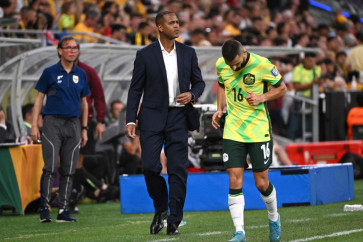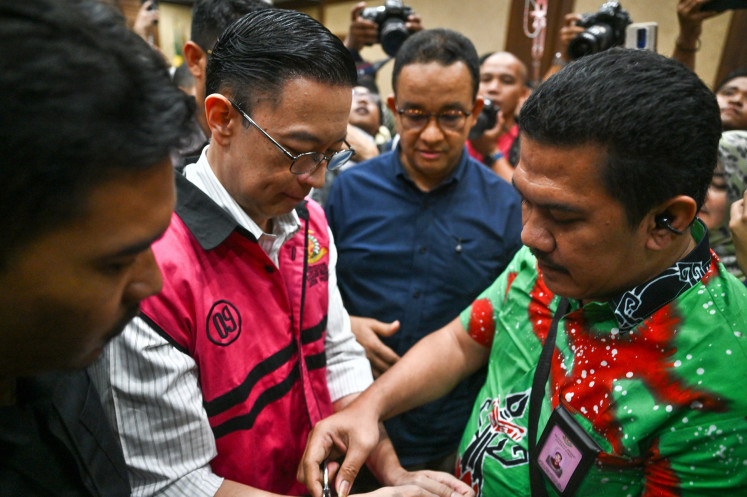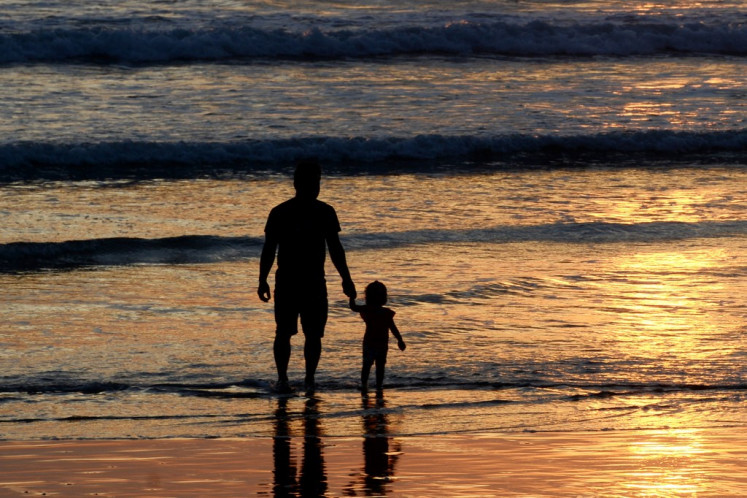Popular Reads
Top Results
Can't find what you're looking for?
View all search resultsPopular Reads
Top Results
Can't find what you're looking for?
View all search resultsSocial preparedness is crucial in times of disaster: Ambassador
Despite economic growth, Asian countries still face various challenges, including living with natural disasters
Change text size
Gift Premium Articles
to Anyone
D
espite economic growth, Asian countries still face various challenges, including living with natural disasters. The earthquake/tsunami-triggered Fukushima meltdown in Japan last year is an example. To get more insight into how Japanese people deal with disasters, The Jakarta Post’s Elly Burhaini Faizal recently spoke with Japan’s Ambassador to Indonesia Yoshinori Katori on disaster preparedness and mitigation, especially for an urban society. Below are the excerpts.
Question: Indonesia and Japan are prone to natural disasters. How do we deal with natural disasters and build an effective partnership to tackle the problem?
Answer: We have already had a lot of cooperation in disaster preparedness and mitigation. After Aceh’s earthquake and tsunami in 2004, we have had a lot of cooperation.
And when the earthquake and tsunami occurred in Japan last year, we received a lot of support from the Indonesian government and people. We had rescue teams who looked for people buried under the debris. They supported us in delivering emergency response to people who had become the victims of the disasters.
So we already have a long history of mutual cooperation between both countries. The construction of early warning systems, strong housing and the rescue of landslide victims are among the cooperation we have done in the past.
What measures should we take to protect people from disasters?
I think the construction of earthquake-proof houses is one of the very important issues. We [Indonesia and Japan] have already made a lot of effort. The tsunami early warning system and information dissemination are other crucial factors we should better prepare.
I also think it is important to strengthen protection from landslide. Increasing the construction of quake-proof houses and transportation systems will be critical in urban areas.
And it is also important to provide information or education for children, people and women who are living in cities. We should teach them what should they should do in times of disasters, what should be prepared in normal days, or what kind of medicines could be needed in case of disasters.
Why should we pay more attention to disaster preparedness and mitigation for urban society?
I live in Tokyo, where we haven’t had too many earthquakes. Somehow I and other people forget that serious earthquakes can happen at any time. This is why disaster preparedness remains an important issue for urban people.
When I was with some of my friends shortly after recent disasters in Japan, I saw that they had strengthened bookshelves. These should be well-built so that they do not fall down in the time of a disaster, for example.
We also should not put everything too close to the bed because this can hurt you when you’re sleeping. You should have footwear right beside your bed so you can quickly take your shoes and go once a disaster occurs.
After the terrible earthquake and tsunami in March last year, what is the situation in Japan?
We still have a lot of difficulties. Many areas are still heavily damaged. Construction may take many years. In the other people’s hands, more temporary housing has been completed, so people who have fled to evacuation shelters at least can move to the temporary housing.
Basic social functions, such as transportation and communication, as well as food and production supply, are being re-established. The damaged nuclear plant for the time being is under control.
So, I think we are moving in a good direction. Yet, we have to continue to work very hard.










